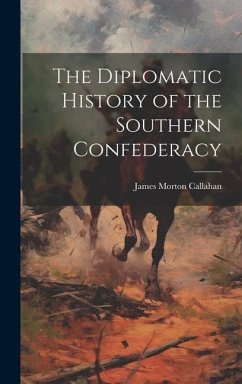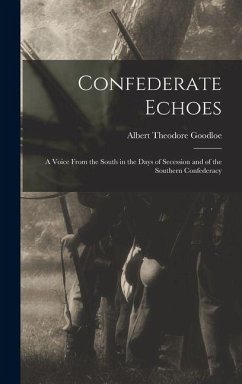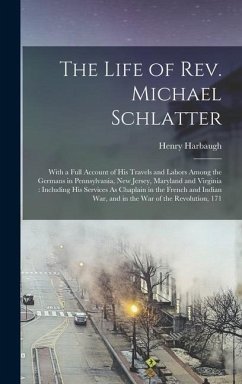
First Chaplain of the Confederacy
Father Darius Hubert, S.J.

PAYBACK Punkte
21 °P sammeln!
"In "First Chaplain of the Confederacy" Katherine Jeffrey tells the little-known story of Darius Hubert, a French-born Jesuit who made his home in Louisiana in the 1840s, where he served churches and schools in Grand Coteau, Baton Rouge, and New Orleans. Later, Hubert pronounced a blessing at the Louisiana Secession Convention and became the first chaplain appointed to Confederate service in the Civil War. He served with the First Louisiana Infantry in Robert E. Lee's Army of Northern Virginia for the entirety of the war and afterward came home to New Orleans, where he continued his ministry a...
"In "First Chaplain of the Confederacy" Katherine Jeffrey tells the little-known story of Darius Hubert, a French-born Jesuit who made his home in Louisiana in the 1840s, where he served churches and schools in Grand Coteau, Baton Rouge, and New Orleans. Later, Hubert pronounced a blessing at the Louisiana Secession Convention and became the first chaplain appointed to Confederate service in the Civil War. He served with the First Louisiana Infantry in Robert E. Lee's Army of Northern Virginia for the entirety of the war and afterward came home to New Orleans, where he continued his ministry among veterans, to whom he had become a trusted pastor and friend. One of only three full-time Catholic chaplains who served in Lee's army, he was the only one to return permanently to the South after surrender. In postwar New Orleans, Hubert was unanimously elected chaplain of the veterans of the eastern campaign and became prominent for his memorable public prayers at memorial events, funerals of figures such as Jefferson Davis, and the dedication of Confederate monuments. This first-ever biography of Hubert traces his origins in revolutionary France, his entry into the Society of Jesus, and his decision to cross the ocean and throw in his lot with the southern Jesuits of the New Orleans Province. It describes his interactions with slaves and free people of color, the effects of anti-Catholic and anti-Jesuit propaganda, disputes and dysfunction with the trustees of his Baton Rouge church, and a deadly confrontation with political violence from members of the Know-Nothing party. It follows him on the march and in camp with the Army of Northern Virginia, through harrowing battles and their equally traumatic aftermath in surgeon's tents and hospitals. It explores his role as a spiritual director, friend, mentor, and "intercessor in chief" in the fractious and politically divided Crescent City in the 1870s and 80s, where he both honored Confederate memory and promoted reconciliation and social harmony. It examines in some detail his broadly ecumenical friendships, which distinguished him from many of his fellow priests, including Catholic chaplains with whom he served in the war. It pauses over his unusually supportive role of women, tracing his platonic relationships with a brilliant Catholic convert from Ohio forced to live in a religious "no man's land" in the South and an illiterate Irish entrepreneur and philanthropist whose local celebrity hid deep spiritual anguish. Jeffrey's biography of Hubert adds much to our understanding of Catholicism and religion during and after the nation's most tragic event. It is certain to be appreciated by Civil War historians, general readers, and those with an interest in the history of religion in America."--













